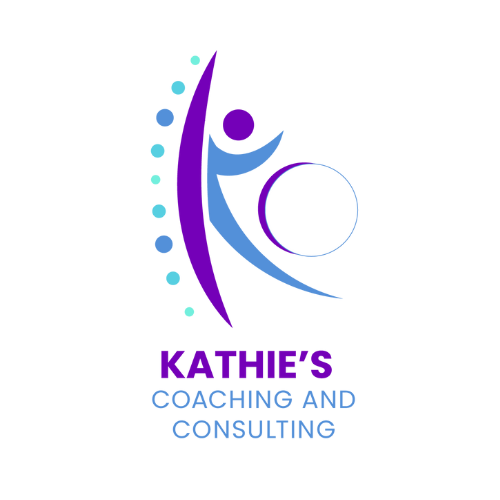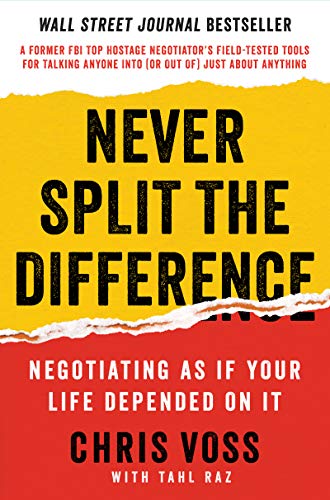Breaking Barriers: A Tale of Empathy, Mentorship, and Personal Growth
Harnessing Emotional Intelligence for Personal Growth
The Art of Communication: A Personal Journey
Hello, everyone! I'm Kathie Owen, and today on my podcast and YouTube channel, I'm excited to share with you my journey into the realms of emotional intelligence and storytelling. It's a path that has been both challenging and rewarding, shaped by my personal experiences, particularly my childhood struggles with communication. I remember how hard it was to express my emotions due to the fear of being punished. This pain, though difficult, was a crucial step in my growth in emotional intelligence and self-awareness.
Here’s a link to the video on YouTube. And here’s a link to the exact podcast episode #143 on Kathie’s Coaching Podcast.
Emotional Intelligence: A Guiding Light
In my journey, the role of understanding and effectively managing my emotions, coupled with the ability to empathize with others, has been absolutely fundamental. These skills have not only aided me in navigating personal challenges but have also immensely enhanced my interactions and relationships with those around me. My inspiration was further ignited upon reading "Amplify Your Influence" by Renee Rodriguez. This enlightening book offered a profound insight into the formation of our core values, especially highlighting the crucial developmental phase between the ages of nine and thirteen.
I listened to Amplify Your Influence and read the book on my Kindle in November 2023. It was through this resource that I began to deeply comprehend how these formative years lay the foundation for our future selves. The values we embrace during this critical period often become the bedrock of our beliefs, attitudes, and actions later in life. This understanding has been a pivotal point in my personal growth, enabling me to trace back and understand the origins of many of my values and perspectives. It has also helped me appreciate the nuances of human behavior and the intricate process of value formation in others. And I am currently 58 years young!
This revelation about core values has not only been a source of introspection but also a guide in my interactions and coaching. Recognizing the impact of early life experiences on our values has allowed me to approach situations with a more empathetic and understanding mindset. It's fascinating to see how these early influences shape our responses to various situations, mold our decision-making processes, and drive our motivations. In essence, grasping this concept has been a transformative experience, reshaping the way I view myself and others, and has been integral in my journey toward emotional maturity and effective communication.
The Role of Mentorship and Empathy in My Life
I want to share with you a deeply touching experience from my past, a story that has stayed with me over the years and shaped my understanding of empathy and connection. During my time as a sixth-grade mentor to kindergartners, I encountered a moment that would forever impact my perspective on mentorship and the power of understanding. Among the children, there was a young boy named Jason who particularly stood out to me. From the first day, I felt a strong and inexplicable bond with him. As I observed Jason, I couldn't help but notice certain behaviors and expressions that hinted at underlying troubles. It was as if his eyes held untold stories that his young age couldn't articulate.
Despite my youthful inexperience, I felt an overwhelming desire to offer support and guidance to Jason. This was more than just a mentorship role; it was a calling that tugged at the very core of my being. However, my intentions to provide help were consistently clouded by the fears and anxieties that my mother had unintentionally instilled in me. Her protective nature, though coming from a place of love, had inadvertently shaped my approach to challenging situations, often causing me to second-guess my instincts.
This conflict between my innate urge to help and the apprehensions I had learned was a profound struggle. I grappled with feelings of helplessness, wondering how I could make a difference in Jason's life while battling my own insecurities. It was during this period that I learned invaluable lessons about the essence of empathy. I realized that true empathy goes beyond mere understanding; it involves an emotional connection that compels one to act, to make a difference in whatever way possible.
Furthermore, this experience underscored the vital role of mentorship, especially in the lives of young children. Being a mentor to these kindergartners, and particularly to Jason, taught me the impact that kindness, attention, and guidance can have on a developing mind. It made me appreciate the power of a listening ear, a supportive word, and the immense value of simply being present for someone in need.
This journey with Jason, although filled with challenges, was a beautiful testament to the human capacity for empathy and connection. It was a vivid illustration of how even the smallest gestures of compassion can leave lasting impressions, shaping both the giver and the receiver. This experience, though set in the backdrop of a classroom, went far beyond the confines of those walls, leaving an indelible mark on my life and shaping my approach to mentorship, empathy, and human connection.
Navigating the Challenges of Communication
I've always approached my challenges with a sense of openness and honesty, particularly when it comes to effective communication. This area has been a significant struggle for me, especially in terms of conveying my emotional awareness in a way that is both clear and impactful. You may notice this in my videos. I sure do!
Communication, as I've learned, is not just about the words we speak; it's about the emotions we convey, the body language we use, and the ability to connect with others on a deeper level. My journey to improve this skill has been ongoing, marked by both setbacks and breakthroughs.
In my quest for better communication skills, I found an invaluable resource in "Never Split the Difference," a book authored by an experienced FBI negotiator. I am currently listening to this book in December of 2023 and I found Chris Voss on The Futur Podcast with Chris Do.
This book opened my eyes to the nuanced art of negotiation, which, at its core, is a form of communication. The strategies outlined in the book are not just about getting what you want but understanding the emotional underpinnings of every interaction. It taught me how to listen actively, how to read between the lines, and how to recognize the unspoken emotions that people convey.
These lessons were more than just techniques; they were insights into the human psyche. I learned how to empathize with others' viewpoints, how to approach conversations with a mindset of understanding rather than winning, and how to use emotional intelligence to connect with people on a level that goes beyond mere words. This was particularly enlightening for me, as it aligned with my own experiences and struggles with emotional expression.
Moreover, "Never Split the Difference" provided me with tools to manage my emotions during conversations, allowing me to stay calm and focused even in challenging situations. The book emphasized the importance of being both assertive and empathetic, a balance that I had always found difficult to achieve. By applying these strategies, I noticed a significant improvement in my interactions, both professionally and personally. I became more confident in expressing my thoughts and feelings, and more importantly, I learned how to create a space where others felt heard and understood.
This journey in enhancing my communication skills has been transformative. It has not only improved my ability to express myself but has also deepened my connections with others. Every conversation, every negotiation, has become an opportunity to practice and refine these skills, making each interaction a valuable learning experience. As I continue to grow and evolve in this area, I am constantly reminded of the power of empathy, and understanding, and the impact of effective communication in building stronger, more meaningful relationships.
From Human Resources to Corporate Wellness
Reflecting on my career trajectory, it's fascinating to see how my aspirations and goals have evolved, leading me from an initial ambition to work in human resources to my current role as a corporate wellness director. This significant shift in my professional path is not just a change in job titles; it represents a profound journey of personal development and self-discovery, highlighting the often unpredictable, yet ultimately rewarding, nature of life's journey.
Initially, my interest in human resources stemmed from a desire to understand and manage the dynamics of workplace relationships and to contribute to the creation of positive and productive work environments. I was intrigued by the prospect of being at the forefront of employee engagement, talent development, and organizational culture. However, as I delved deeper into this field, I began to realize that my true passion lay in a slightly different direction.
The transition to a role in corporate wellness opened up a new world of opportunities for me. It allowed me to merge my interest in human behavior and workplace dynamics with my growing passion for health, well-being, and personal growth. In this role, I've had the privilege of designing and implementing programs that not only enhance the physical health of employees but also address their mental and emotional well-being. This holistic approach to wellness has been incredibly fulfilling, as it aligns perfectly with my values and beliefs about the importance of nurturing all aspects of an individual's health.
This career shift also reflects a broader evolution in my personal life. Over the years, I've become increasingly committed to my own health and wellness journey, exploring various aspects of fitness, nutrition, mindfulness, and emotional well-being. This personal transformation has been instrumental in shaping my professional path. It's reinforced my belief that true wellness goes beyond physical health and encompasses a balanced and integrated approach to living.
Moreover, this transition has taught me valuable lessons about adaptability, resilience, and the importance of following one's passions. It's a reminder that our career paths are not always linear or predictable, and that's perfectly okay. Embracing change, exploring new opportunities, and staying true to one's evolving interests and passions can lead to incredibly rewarding experiences.
In my current role as a corporate wellness director, I feel a deep sense of purpose and fulfillment. I can make a tangible impact on people's lives, contributing not just to their professional success, but also to their overall quality of life. This experience has been a powerful testament to the idea that when you align your career with your values and passions, work becomes more than just a job – it becomes a meaningful and integral part of your life's journey.
Understanding Intrinsic and Extrinsic Motivation in the Corporate World
Drawing on my varied and rich corporate experiences, I've developed a nuanced understanding of the stark contrasts between intrinsic and extrinsic motivation, especially in the context of the workplace. This understanding has not just been theoretical; it's been shaped by real-world observations and personal interactions within the corporate sphere. I've seen firsthand how different motivational strategies can significantly impact employee engagement, satisfaction, and productivity.
Extrinsic motivation, which is driven by external rewards such as salary increases, bonuses, or other tangible benefits, certainly has its place in the corporate world. It can be an effective short-term strategy to boost productivity and achieve specific goals. However, my experiences have taught me that this type of motivation often lacks sustainability. It can lead to a transactional relationship between employer and employee, where the depth of commitment and engagement is directly proportional to the rewards offered.
In contrast, intrinsic motivation comes from within the individual. It's fueled by personal satisfaction, passion, interest, and a sense of achievement. In a corporate setting, fostering an environment that nurtures intrinsic motivation can lead to more profound and enduring benefits. Employees driven by intrinsic factors tend to be more creative, more committed, and more willing to go the extra mile. They find value in their work beyond the external rewards, which often results in higher quality work and greater overall fulfillment.
Advocating for a more intrinsic approach in corporate environments means encouraging a culture where employees feel valued not just for what they do but for who they are. It involves creating opportunities for meaningful work, recognizing and nurturing individual strengths and interests, and fostering a sense of purpose and connection to the company's mission. This approach also includes supporting employee autonomy, offering opportunities for personal and professional growth, and cultivating a supportive and inclusive workplace culture.
My advocacy for intrinsic motivation also stems from a deeper understanding of human psychology and the factors that drive long-term satisfaction and well-being. Intrinsic motivation aligns with our basic human needs for autonomy, competence, and relatedness. When these needs are met, employees are not only more engaged and productive but also generally happier and healthier.
Implementing this approach requires a shift in mindset from both employers and employees. It calls for a deeper understanding of what truly motivates people and a commitment to building an organizational culture that supports these motivations. This shift can be challenging, but the potential benefits for employee well-being and organizational success are substantial.
In sum, my corporate experiences have solidified my belief in the power of intrinsic motivation as a key driver of employee engagement and satisfaction. By focusing on intrinsic factors and creating an environment that nurtures them, organizations can foster a more committed, passionate, and fulfilled workforce, leading to sustainable success and growth.
The Transformative Power of Storytelling
I firmly believe in the transformative power of storytelling as a tool to foster intrinsic motivation. This belief stems from my personal experiences and observations of how compelling narratives can deeply influence our thoughts, emotions, and actions. Storytelling, in its essence, is an art form that connects us to our innermost feelings, values, and desires. It has the unique ability to transcend the superficial layers of our motivations, touching the very core of our being.
In my journey, I've realized that every individual has a unique story to tell, a narrative that shapes their identity, beliefs, and aspirations. These personal stories are reservoirs of immense wisdom and insight, often containing the keys to understanding our true motivations. When we explore our narratives, we uncover the authentic reasons behind our goals and actions, which often lie buried beneath the surface of our conscious minds. This process of self-exploration and reflection can be incredibly enlightening, revealing the intrinsic values and passions that drive us.
I encourage everyone, especially in a professional setting, to delve into their own stories. This could involve reflecting on past experiences that have shaped your worldview, identifying moments of triumph and adversity, or acknowledging the dreams and aspirations that propel you forward. By understanding your narrative, you can align your goals and actions with your core values, leading to a more fulfilling and motivated life.
Moreover, storytelling is a powerful tool for connecting with others. In a corporate environment, sharing stories can foster a sense of community and belonging. It helps build empathy and understanding among colleagues, creating a more cohesive and supportive workplace culture. When people share their stories, they reveal their humanity, making them more relatable and approachable. This can break down barriers and build trust, essential elements for effective teamwork and collaboration.
Furthermore, storytelling can be an effective leadership tool. Leaders who share their journeys, challenges, and successes can inspire their teams and encourage a culture of openness and authenticity. This not only boosts morale but also empowers employees to embrace their own stories and find motivation in their unique journeys.
In essence, the power of storytelling extends far beyond mere entertainment. It is a profound mechanism for uncovering and understanding the intrinsic motivations that propel us in life. By embracing our personal stories and the narratives of those around us, we can cultivate a deeper, more meaningful connection to our work, our goals, and to each other. In doing so, we move beyond shallow, external motivations and tap into a more sustainable and fulfilling source of drive and inspiration.
True Change Comes from Within
In wrapping up, I want to emphasize that while extrinsic rewards can be appealing, it is our intrinsic motivations, rooted in our personal stories and values, that lead to lasting change and fulfillment.
I invite you all to share this episode with anyone who might find it helpful. Let's take a moment to reflect on our own motivations and the stories we tell ourselves.
Thank you for joining me on this journey of self-discovery and improvement. Stay tuned for more insightful discussions in my upcoming episodes.
Namaste and Peace Out! 🙏














A leadership coach shares her personal journey of being fired for speaking up against toxic workplace culture, drawing parallels with Ted Lasso's themes of authentic leadership and courage. Her story illustrates how challenging systemic dysfunction often comes at a cost—but leads to greater freedom. #WorkplaceCulture #Leadership #TedLasso #ToxicWorkplace #CareerGrowth